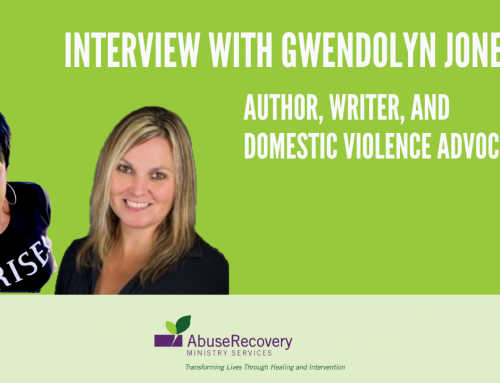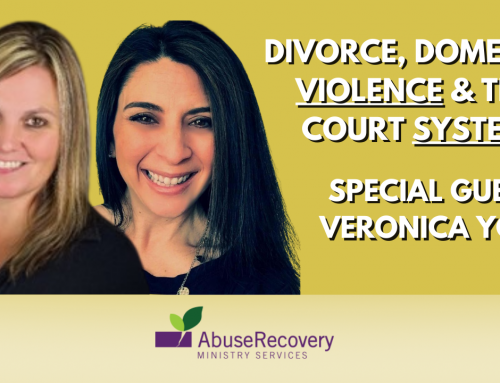By M.L.
Have you wondered what the Bible says about family abuse? Here’s my perspective about a key Bible character—the one who was a man after God’s own heart. When I seriously sought God about separating from my abusive husband in our 25th year of marriage, God gave me insights from what I had just read about the life of David (1 Samuel 18 – 22). I was amazed at how it applied. It helped my decision to move forward, which was a turning-point decision for my life.
The Back Story
After killing Goliath, David became a key warrior in King Saul’s army and had favor with Saul. David apparently lived in Saul’s home, ate regularly at his table, and played music for him. He had been secretly anointed to be King in Saul’s place, so he had a promise from God about his future. The Spirit of God had come upon him. He acted wisely, and God was with him, prospering everything he did.
When Saul became jealous of David and thew a spear at him, David escaped twice (1 Kings 18:10-11). He didn’t stay away long and further committed to the family by marrying Saul’s daughter. He didn’t recognize that Saul was orchestrating events to bring about his downfall (18:17-22).
Later David got word that Saul was trying to kill him, and he hid for a short time. But Saul was talked out of it and David returned. When Saul tried to kill him again, David hid, enlisted his friend to check out the situation, and then fled in earnest when Saul’s destructive intent was confirmed.
Lessons from David’s Response
- David didn’t ignore the danger but took it seriously. He didn’t say, “I’ve faced many warriors in battle, and I’m younger than Saul. I dodged his spear before, and I can do it again.”
David didn’t stay because of submission to authority or the bonds of marriage. Saul was both his King and his father-in-law, yet David didn’t obey him to the point of losing his life. When David fled, he had to separate from his wife as well. He didn’t say, “Surely God wants me to submit to authority and uphold my vows of loyalty to Saul and to my marriage. He is King, after all, AND my father-in-law. I’ll stay and submit.” - David didn’t assume God would protect him if he stayed in this dangerous situation. While the Psalms show he clearly trusted God, David believed he was partially responsible for his own safety. He partnered with God to take action. He didn’t say, “God promised that I will be King, so surely He will protect me. I don’t need to act. I’ll pray and trust God to change him.”
- David didn’t wait for a good opportunity to leave. He left quickly, in secret, and didn’t even take enough provisions. He had to work out details about food and where to stay after he left. He didn’t stand on ceremony but ate the bread that was only lawful for priests to eat. He valued his life enough to live in a cave where no one threw spears at him, trusting that it was temporary. He didn’t say, “Surely Saul will cooperate if I agree to leave. I can take some time, tie up loose ends, and make plans for a good situation.”
- David acted according to this bit of wisdom, penned by his son Solomon years later: “The prudent see danger and take refuge, but the simple keep going and pay the penalty.” Proverbs 22:3 and 27:12
Although here are ARMS, we highly recommend safety planning before leaving (as well as figuring out needed provisions), David’s life was a stake. That sometimes requires very quick action such as calling the police, or even fleeing first and then calling the police.
Though as a mighty warrior, David trusted God and wasn’t afraid of opponents in battle, yet he fled from a dangerous member of his own household. Should we take our abusers less seriously than this—even if they “only” shoot fiery darts of poisonous words, which hold the power of life and death? (James 3:6, 8; Proverbs 18:21)
Let’s face it: It’s hard to disrupt your life. But sometimes it’s necessary. Beloved, let us be wise about protecting the precious lives God has given us!
“This day I call the heavens and the earth as witnesses against you that I have set before you life and death, blessings and curses.
Now choose life, so that you and your children may live.”
Deuteronomy 30:19 (NIV)
By M.L.







Leave A Comment